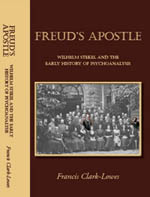Back on my own again, I headed south-east for Belgrade across a pre-industrial countryside. I saw oxen being shoed and pulling ploughs, men and women carrying churns of milk on yokes, women spinning wool on a distaff, and most of the transport on the roads was drawn by horse, ox, donkey or mule. Mind you, I was avoiding main roads, and this Amish-like impression was rudely interrupted whenever I had to cross or walk along the ‘autoput’ connecting Europe and Asia. This two-lane highway carried an extraordinary array of vehicles from every country between India and Ireland, but especially from Bulgaria.
From Belgrade I made a lightening bus-trip to Temisoara in Romania, which then had a significant German minority. I met a German-Australian on the bus who invited me to stay with her relations in the town. They were having a hard time under Ceausescu and wanted to leave, which no doubt they did in the 80s when he paid them to do so.
I said goodbye at last to the Danube east of Belgrade, and headed south for Nish, roughly following the Morava River, and then climbed over the mountains on the old road to Bulgaria (the autoput tunnels its way through). I spent a couple of nights in a leaking campsite hut on the edge of Sofia and from then on it hardly stopped raining again until I got into Turkey. Because of the Bulgarian communist regime’s restrictions on foreigners I averaged 56 km (34 miles) a day to the Turkish border, staying only in tourist approved hotels or campsites. I ended up with some nasty sores caused by the rubbing of my wet trousers against my thighs.
In Belgrade I had seen my first mosque. In Nish there was a more prominent one, and the mosques in Sofia and Plovdiv were impressive. But when I mentioned my interest in this growing Muslim presence to a female tourist advisor in Plovdiv she told me sharply that it was not interesting. And indeed, it proved impossible to visit any of the mosques in Bulgaria. Presumably they were, as I had been told, ‘uninteresting’!
At last in Edirne, what a surprise to be woken at an unearthly hour by the muezzin clearing his throat into the microphone and then calling to the faithful: ‘Prayer is better than sleep’. Shortly after leaving Edirne I met a 69-year-old German who had also set out to walk to Jerusalem from his home-town, Cologne, though in his case pushing his bicycle with all his luggage attached to it. The mukhtar (mayor) of Buyuk Karisdiran put me up (and even washed my hair!), and Johannes stayed with his brother. The next day we set out together for Istanbul, beyond which he’d decided not to go after hearing frightening stories about the natives of Anatolia. But his pace was too slow for me and so sadly we soon parted company.
In Sofia I had been disappointed to find no post from Angie, and was distraught when I experienced the same in Istanbul. I thought of going straight back to Vienna, but two days later I found a lovely letter from her which had been misdirected to the post office saying that she’d sent three letters to Sofia, one containing a birthday present. I’d arrived there too soon!
Istanbul is an amazing place, and so I enjoyed a few days there, meeting lots of people, eating at the famous Pudding Shop, visiting the Blue, Suleiman the Magnificent and St Sophia mosques, and looking across the Bosporus to Asia, with all its ships coming and going. There on the other side lay Üsküdar (Scutari) of Florence Nightingale fame.
I then made a two-day 500-kilometer hitched round-trip to Sofia to collect those missing letters, and found my birthday present, a silver foot pendant which I treasure to this day. At midnight a policeman on the outskirts of Sofia ordered a Palestinian-Jordanian lorry driver, who was illegally parked, to take me back to the frontier, whence a shared taxi to Edirne and a lift with a German back to Istanbul. There, after a three-hour wait, I managed to get through to Angie on an antiquated telephone and tell her my news.

